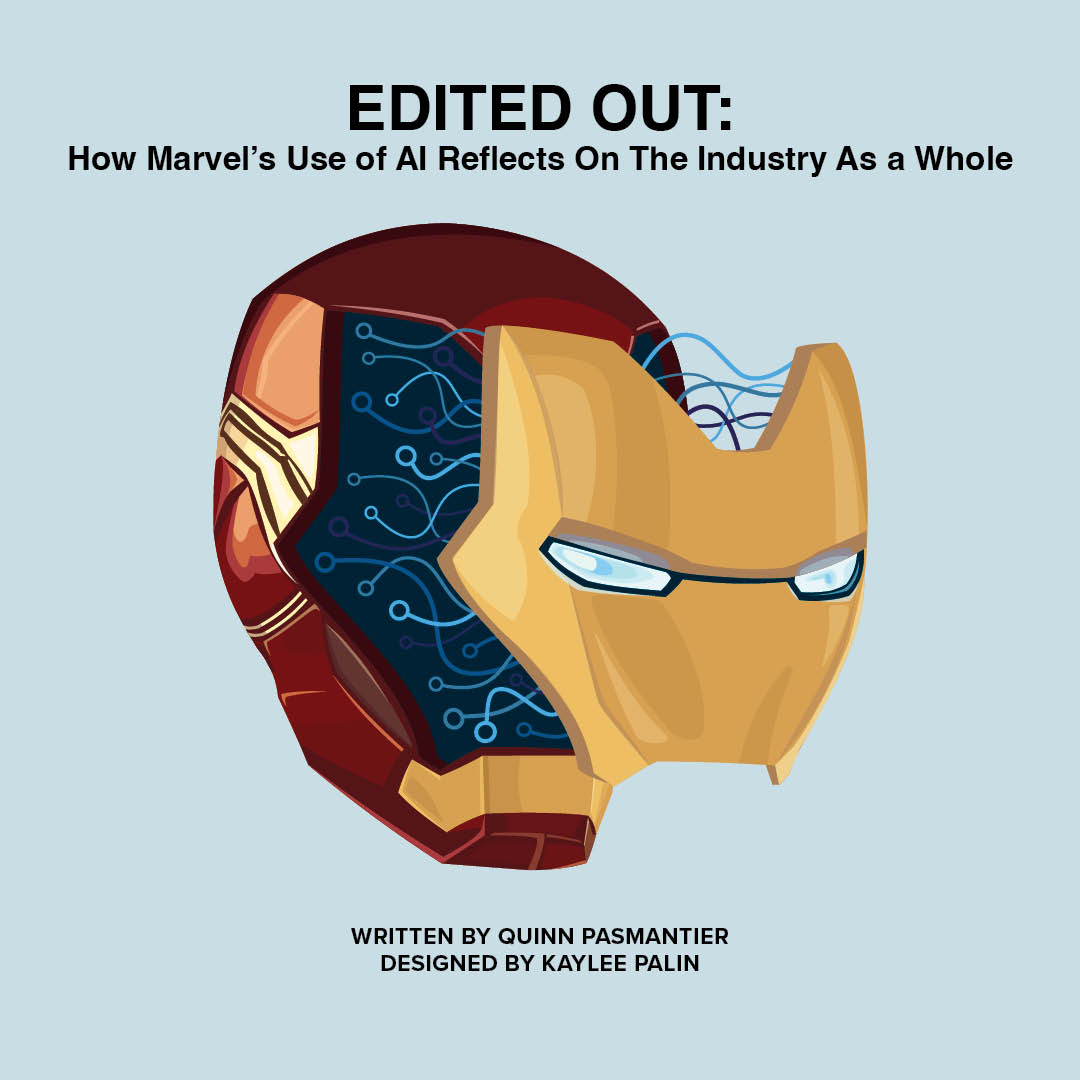
The Writers Guild of America went on strike May 2. Though their reasons for protesting were multifaceted, one of their most prominent concerns was the rise of artificial intelligence, or AI, in creative spaces.
On June 21, Marvel released “Secret Invasion” — whose intro and credits were animated mainly using AI. A month later, actors in Marvel properties began reporting that their likenesses had been scanned on-set for use of AI generated background characters. With issues like these surfacing so soon after the start of the writers strike, viewers began to question just how far the entertainment industry would be willing to go with artificially generated imagery.
“Secret Invasion,” a Disney+ series produced by Marvel, follows Nick Fury and his companions as they struggle against highly intelligent aliens attempting to take Earth for themselves. These aliens, called the Skrulls, possess the unique ability to shapeshift. They can copy the appearance of almost anyone, even mimicking minute details such as voice and personality. Using AI for the intro of a show whose premise is the imitation of human life might seem ironic — but according to executive producer Ali Selim, it was a deliberate choice.
“When we reached out to the AI vendors, that was part of it,” Selim said in an interview with Polygon. “It just came right out of the shape-shifting, Skrull world identity, you know? Who did this? Who is this?”
Method Studios, the company tasked with producing the intro, put out a statement attempting to quell the additional backlash: “AI is just one tool among the array of tool sets our artists used. No artists’ jobs were replaced by incorporating these new tools; instead, they complemented and assisted our creative teams.”
While it has been confirmed that artists were involved in the directing process and final animation of the product, Method never stated if the art the AI was pulling from consisted of in-house sources only, or if it pulled from external, unconsenting artists.
Actress Alexandria Rubalcaba, who was a background actor on another Marvel show, “WandaVision,” spoke with ComicBook.com about Marvel’s other controversy. She explained how dozens of background actors and actresses were taken into a large van filled with cameras and scanning equipment and told to pull different poses. In an interview with NPR, Rulbalcaba expressed her worries about the implications of this new phenomenon.
“I fear that AI is eventually going to weed out background actors. They won’t have any use for us anymore,” she said.
In the same interview with NPR, five additional performers said they also received body scans, with little to no explanation as to what the data would be used for. Rebecca Safier, an actress based in Los Angeles, explained that many workers feared they would be fired if they did not comply.
“You don’t know if they’re going to, like, call up casting and say, oh, this person was being difficult and maybe not say why,” she said. “Then maybe they won’t hire you again because that’s the way the system works.”
It’s unclear whether AI is going to completely supplant workers in the creative space. However, when companies as big as Marvel begin to remove or replace their writers and actors in favor of cheaper, faster AI programs, it causes workers and fans alike to contemplate what direction movies are going in. These discussions will no doubt continue on, even though the writers have reached a tentative deal with Hollywood. However, one thing remains ultimately clear whether or not the conversations persist: this will not be the last time that AI and media meet.